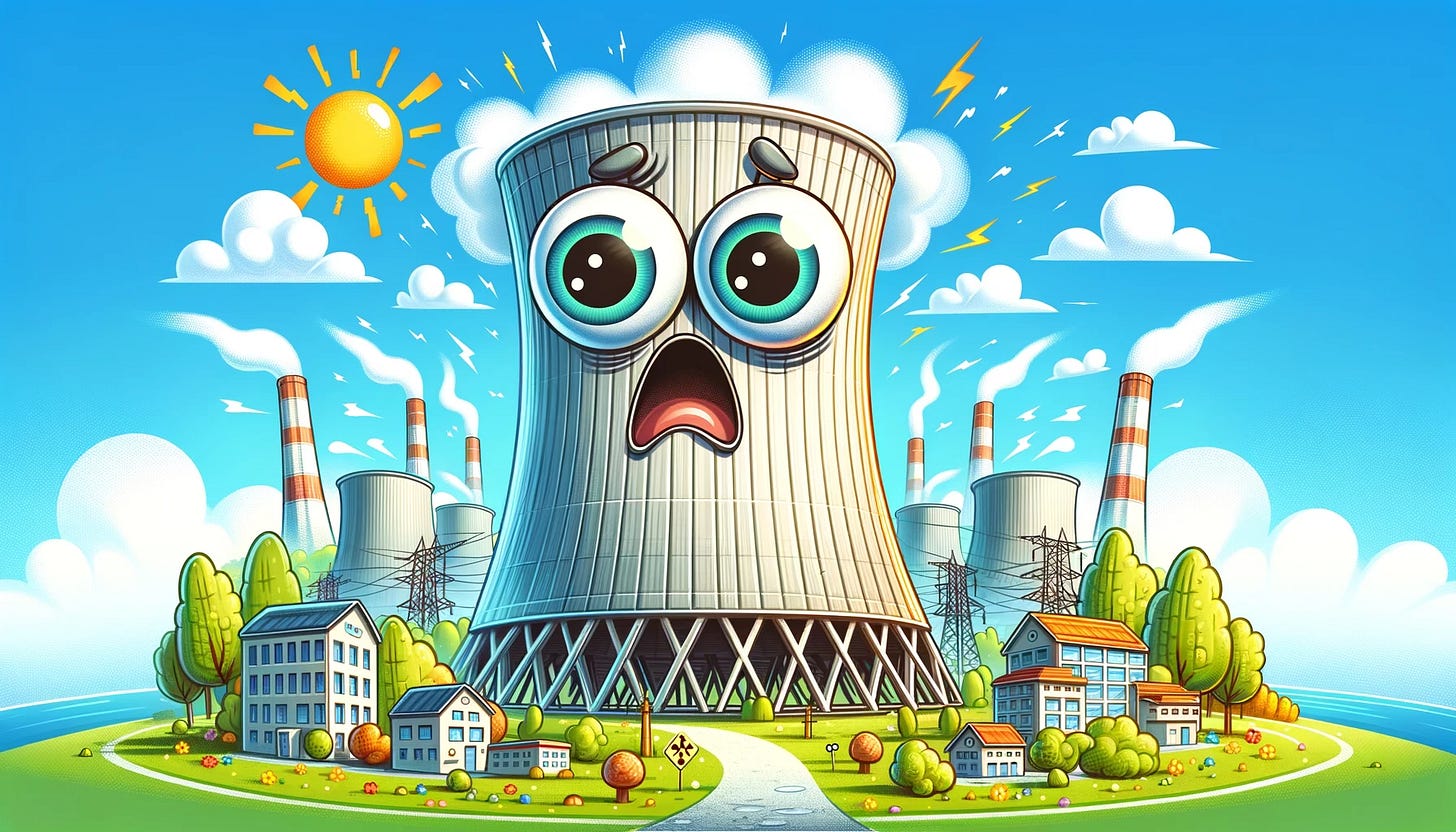I'm worried that Britain's electric grid is massively unprepared for AI
No time to Netflix and chill – we need to build
No matter how many times I read about it, I just can’t make myself care about the climate impact of Netflix.
Every few months, the same article gets written. Here’s one example in Science Focus worrying about the carbon emissions from streaming Netflix. Here’s The Guardian on Netflix and YouTube’s emissions, and in this New Statesman one, Spotify is the villain.
They all tend to follow the same format: Someone has attempted to model and calculate the carbon emissions from streaming, based on the energy required to transfer the data – then the resulting figures are put into context with scary-sounding comparisons.
For example, this one reckons that the emissions caused by the 1.1 billion streams of 2021’s most popular song1 was equivalent to that of 4000 flights from London to New York. Sounds bad!
What frustrates me about this genre of handwringing though is how they’re fundamentally focusing on the wrong thing, because literally every alternative is worse.
I mean, it’s hard to think of a more efficient way to deliver media to our homes than by sending pulses of light along a fibre-optic cable, or by sending electromagnetic waves through the air. On a per-unit-of-content basis, that is obviously many magnitudes less impactful than, say, pressing a CD or manufacturing a VHS tape and shipping it around the world2.
I suppose I could be more generous to the people who purport to care about this3. Perhaps the comparison isn’t like-for-like? It’s possible that there could be emergent negative consequences from the overall volume of streaming content consumption4.
This is because we are likely consuming more content than ever, as hitting play on Spotify or Netflix is easier than hunting down a disc and putting it into a DVD player. So perhaps added together, it’s conceivable that the sum total emissions from “all content consumption” is today higher than it was back in the era of driving to HMV to buy a ten disc “box set” of one season of TV, for £30 a go.
So though it is hard to directly compare the emissions of apples and oranges, I could believe on this basis that perhaps streaming is even worse.
But even if I were to concede this argument, I still find it frustrating because it misses an important caveat: Streaming technology is a good thing.
It’s a good thing for the world that in a few taps we can access a significant proportion of our species’ cultural output. We should celebrate that we can stream video and audio, and share our culture and our lives.
And anyway, the implied alternative is culturally impoverished eco-austerity, where we shame people for what is a trivial proportion of their own personal carbon footprint, while making virtually no impact on climate change.
So it’s ultimately just maddening nonsense. It doesn’t even make sense as a concern on a deeper level too, because if streaming really is that bad for the climate then, well, data centres are probably one of the easiest things to decarbonise.
This is probably why Big Tech has been so bullish in making claims it will decarbonise. Whether it is a sincerely held reflection of Silicon Valley’s values, or just cynical greenwashing, Microsoft has already publicly committed to being “carbon negative” by 2030, and Google aims to reach Net Zero by the same date.
Similarly, Amazon, whose cloud services power a significant chunk of the internet5, reckons it will reach Net Zero by 20256.
And sure, perhaps we can be forgiven for being cynical about their pronouncements. There are lots of nuances around whether their carbon offsets really are offsets, or exactly how robust their carbon accounting is. Or whether they have realistic plans to reach Net Zero at all.
But fundamentally, the relative ease of decarbonising data centres remains true, because they are centralised rows of computers stacked in one place that run on electricity. So switching out the source of the energy that powers them should be straightforward, and much easier than, say, the coordination problem of persuading every household to replace their car with an electric vehicle, or needing to invent new industrial processes to manufacture steel. So at worst, this seems like an extremely solvable problem.
This means there’s nothing to worry about, right?
And if I were writing a rebuttal of the bizarre climate concerns about streaming, I’d end the piece here. Except I’m not.
Because despite the above, I think that data centres could quickly become a problem in the future. Not for climate reasons directly, but because of the energy they will demand in the first place.
This is because over the past few years, there has been a fundamental change in computing. I’m talking, of course, about the rise of artificial intelligence (AI) and machine learning. And I’m worried that data centres could actually become not just a non-bullshit climate problem, but an economic growth and productivity problem too.
And I fear that if we don’t do something to fix it now, we could be totally screwed later on.
AI’s energy problem
Compared to traditional computing, AI and machine learning workloads are much more energy intensive.
Keep reading with a 7-day free trial
Subscribe to Odds and Ends of History to keep reading this post and get 7 days of free access to the full post archives.



